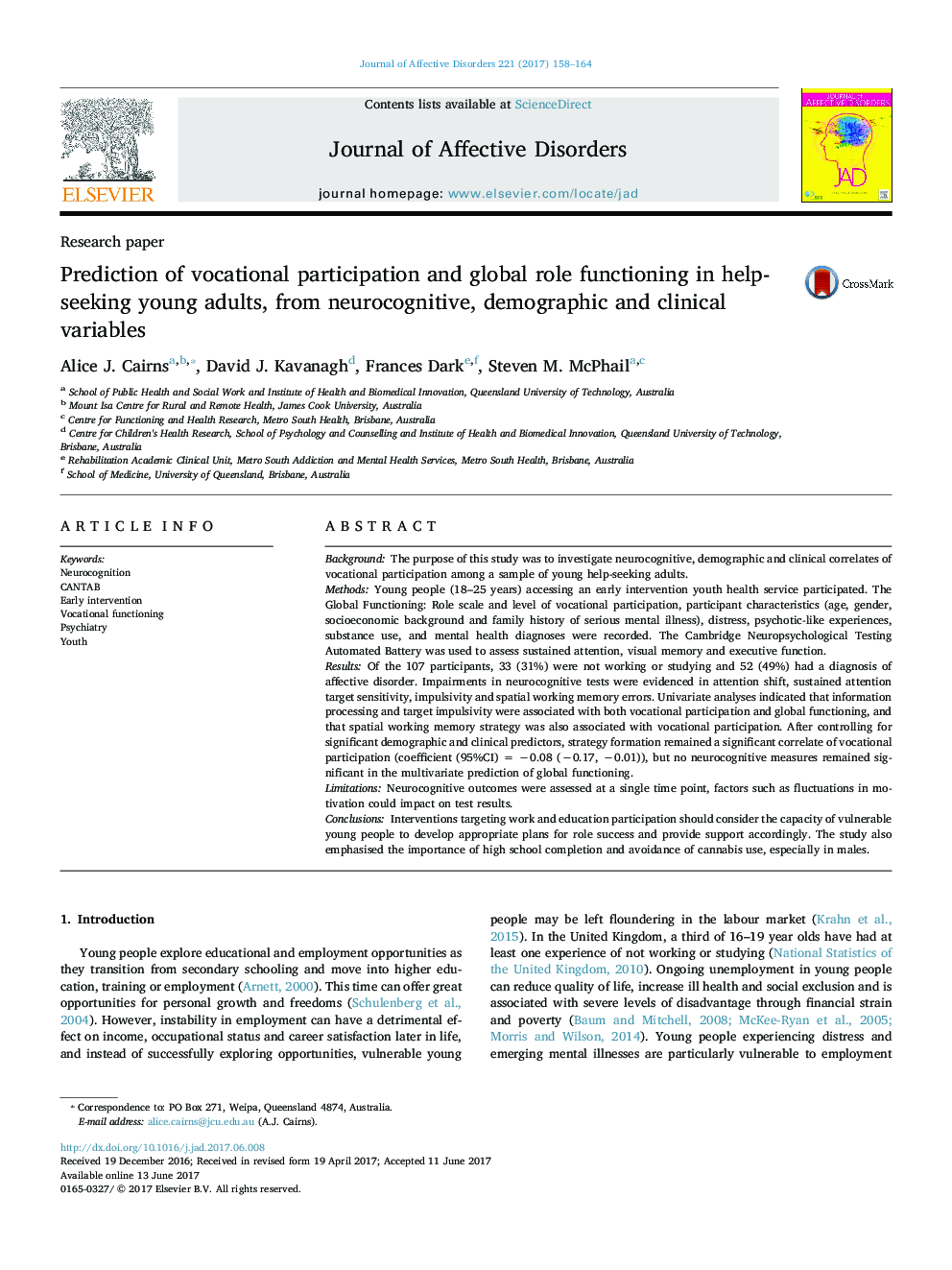| Article ID | Journal | Published Year | Pages | File Type |
|---|---|---|---|---|
| 5722003 | Journal of Affective Disorders | 2017 | 7 Pages |
â¢Executive function deficits are present in young mental health service users.â¢Three executive functioning measures correlated with greater vocational engagement.â¢Strategy formation remained predictive after adjusting for potential confounders.
BackgroundThe purpose of this study was to investigate neurocognitive, demographic and clinical correlates of vocational participation among a sample of young help-seeking adults.MethodsYoung people (18-25 years) accessing an early intervention youth health service participated. The Global Functioning: Role scale and level of vocational participation, participant characteristics (age, gender, socioeconomic background and family history of serious mental illness), distress, psychotic-like experiences, substance use, and mental health diagnoses were recorded. The Cambridge Neuropsychological Testing Automated Battery was used to assess sustained attention, visual memory and executive function.ResultsOf the 107 participants, 33 (31%) were not working or studying and 52 (49%) had a diagnosis of affective disorder. Impairments in neurocognitive tests were evidenced in attention shift, sustained attention target sensitivity, impulsivity and spatial working memory errors. Univariate analyses indicated that information processing and target impulsivity were associated with both vocational participation and global functioning, and that spatial working memory strategy was also associated with vocational participation. After controlling for significant demographic and clinical predictors, strategy formation remained a significant correlate of vocational participation (coefficient (95%CI) = â0.08 (â0.17, â0.01)), but no neurocognitive measures remained significant in the multivariate prediction of global functioning.LimitationsNeurocognitive outcomes were assessed at a single time point, factors such as fluctuations in motivation could impact on test results.ConclusionsInterventions targeting work and education participation should consider the capacity of vulnerable young people to develop appropriate plans for role success and provide support accordingly. The study also emphasised the importance of high school completion and avoidance of cannabis use, especially in males.
